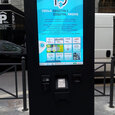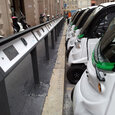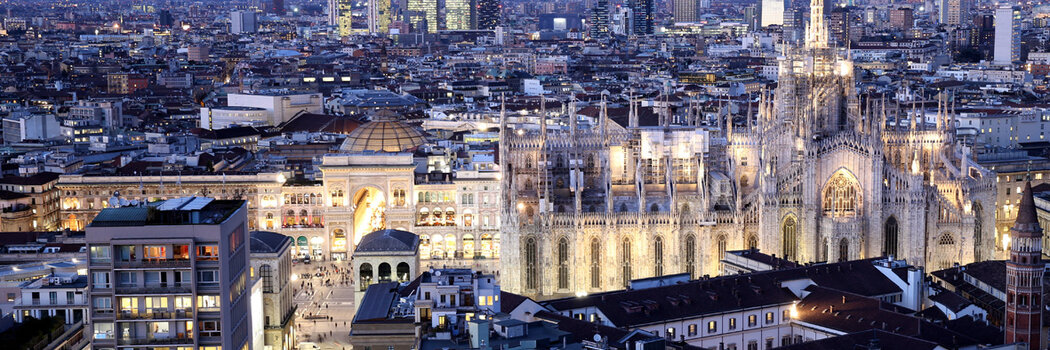
Milan on its way to becoming a Smart City
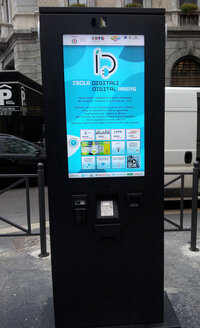
Security concept for Expo 2015
The World Exhibition EXPO, which was staged in Milan in 2015, already cast its shadow in 2011: As part of the safety concept for the large-scale event, the city representatives developed the idea of a universally usable, full-coverage fiber-optic network. The Milanese put the task of implementation into the hands of A2A. With 12,000 employees and a turnover of almost 5 bn. euros, the company is the second largest energy provider in Italy. At the same time, the corporation is exploring new horizons with its subsidiary A2A Smart City: As a pioneer in this field, experts are in discussion about how the city of the future can use technologies even more efficiently and sustainably for its people. The company already built a city network in Brescia ten years ago, approximately 60 km from Milan, which is still considered to be groundbreaking today. Active network technology from MICROSENS is deployed there. This positive reference, among other things, made it clear that the company's industrial switches were imperative for the selection tests for the new network in Milan.
High demands placed on industrial switches
The A2A experts focussed on various performance features within the scope of the evaluation. The industrial switches should:
- be durable and robust
The installation on streets, squares and underground stations places high demands on the devices.
- work over an extended temperature range
The components are not operated in air-conditioned computer centres and are therefore subject to large temperature fluctuations.
- be Power-over-Ethernet capable
Video cameras and access points have to be supplied with electricity via the switches.
- offer extensive management functions
The large number of devices planned requires their simple, safe and reliable management.
- offer several fiber-optic ports, despite their compact dimensions
Redundancy and bandwidth represent essential criteria for the concept and necessitate the appropriate optical interfaces.
Together with its longstanding Italian distributor - CIE TELEMATICA - MICROSENS proved its Gigabit industrial switches’ performance as part of the test and won the tender. Mauro Mariani, Sales Account Manager said: “A2A decided for the following concept: The Profi Line series of Gigabit Ethernet switches from MICROSENS forms the heart of the network. Extremely compact, flexible and robust device with three SFP slots, each of which can be fitted with a Gigabit fiber-optic uplink to build ring and star configurations. The WiFi access points, emergency call pillars or video cameras can be connected to the switches and powered via classical Ethernet ports, as required. Installation of the components began in 2013 and continues still today with new projects and demands.”
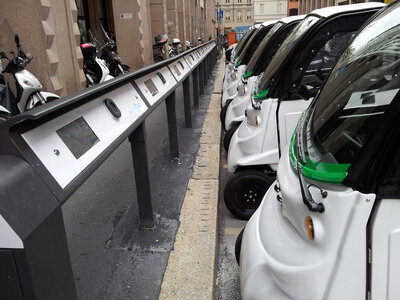
Full-coverage network
The network in Milan has grown continuously ever since: While the first step was to connect the main sites in the tourist centre of the city and schools, now it is also possible to dial into Open WiFi Milano in parks as far as 20 kilometres away from the city centre. The city installed numerous new lines beyond the existing fiber-optic lines to achieve this. The industrial switches are also installed in unusual places, which is where MICROSENS components score especially well, as confirmed by Smart City Director Alessandro Bartolini: "The industrial switches can be easily installed and managed, they work smoothly, even in midsummer under extreme conditions considering the installation places. Most of them are installed into the street cabinet without air ventilation, many other into IP67 boxes in critical locations. We really can rely on the infrastructure all the time, enabling us to provide a professional and continuums service without downtime to the end users for the wifi and to the municipality and police for the video surveillance service". Especially when it comes to the security-related use, reliability plays a major role. For instance, in the parks the network not only allows free Internet surfing: Visitors find emergency call pillars at regular intervals, which are also linked via the network to the control centre.
Safe Champions League Final
Football fans also profited from the advanced concept at the 2016 final of the Champions League in Milan's Giuseppe-Meazza stadium. The city specifically expanded the network so free Internet could also be used in the surrounding areas of the stadium. Moreover, the extensive video surveillance of the site was of key interest for the security experts, especially in view of the terrorist threat. This too could be realised without a hitch using the fiber-optic network. In the future, the network is to be expanded and used for other applications related to the Smart City: these include parking and traffic guide systems, as well as intelligent street lighting.
© Photographic material with kind permission of city of Milan
© istockphoto.com/Luneberg_521270990
About MICROSENS
Transmitting information via fiber optic connections offers numerous benefits. MICROSENS GmbH & Co. KG recognised this very early on. As one of the pioneers, the company has developed and produced high-performance communications and transmission systems in Germany since 1993. Individually matched to the demands of diverse usage areas and embedded in comprehensive concepts for individual sectors. But, above all, close to the customer. Technical challenges from customer projects are incorporated directly into product development. This way, IP-based automation solutions are created for modern buildings, cost-efficient network concepts for the office and workspace, robust and fail-safe solutions for industrial environments, optical transport systems future-oriented wide area networks and efficient coupling of sites and computer centres.








